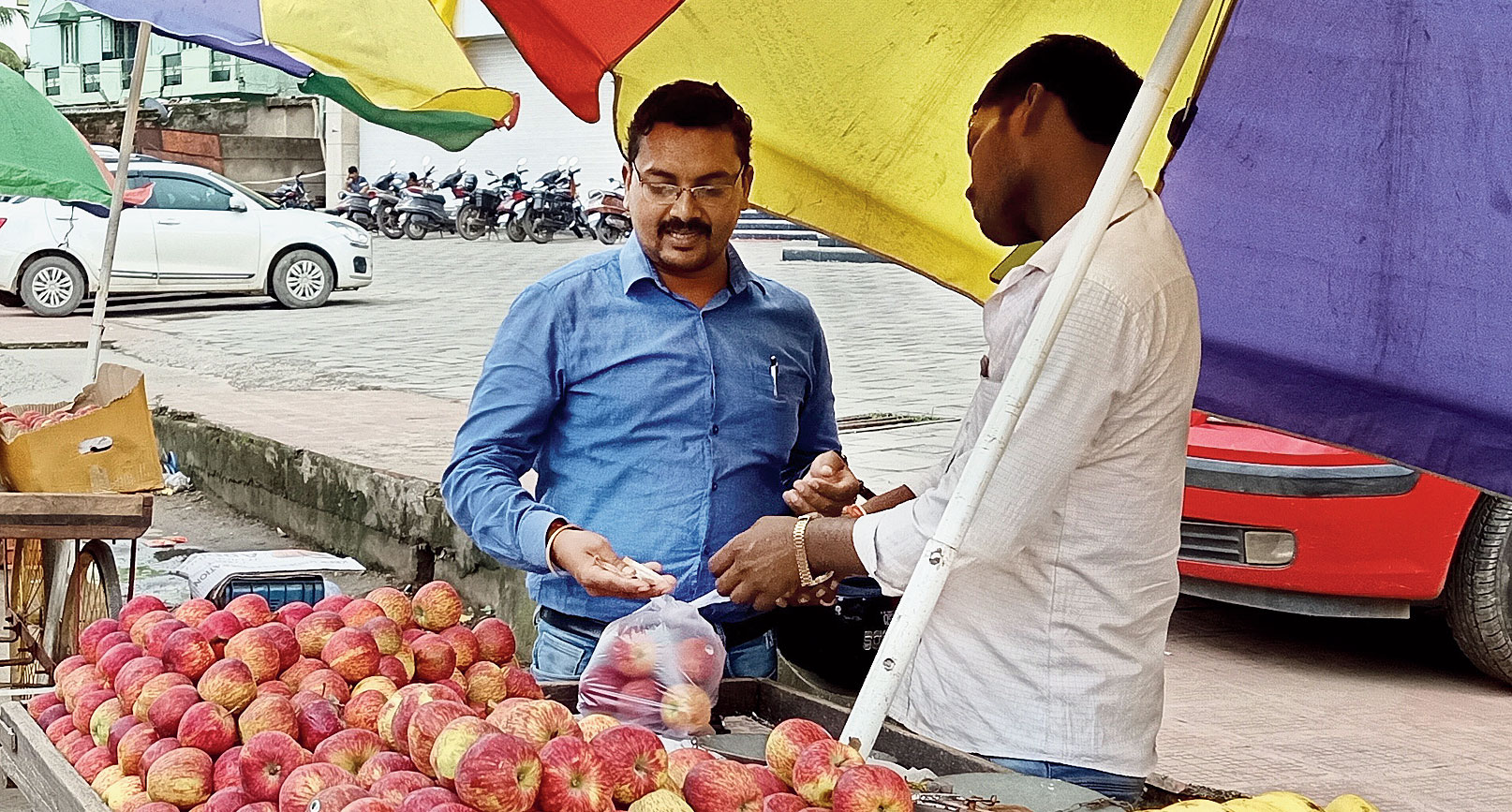People seem to be using more plastic bags in the capital after they were banned on September 15, 2017, those in the know have claimed.
An insider involved in the business of polythene bags claimed that before the plastic ban, irrespective of size and thickness of the plastic bags, 9 tonnes of polythene were used in the capital everyday. The figure now stood at 11 tonnes, he said.
He claimed polythene bags were procured from Delhi and covertly stashed at warehouses to be supplied to retailers.
Municipal commissioner Manoj Kumar came to quote to admit polythene was in use in the capital despite the ban.
“We have constituted an enforcement team to enforce complete ban on polythene use. In the past (nearly) two years, the enforcement team has conducted raids and collected more than Rs 10 lakh as fines from those who were found using polythene. Despite this, the use of plastic bags is very much on. We have no power other than imposing fines,” Kumar said.
Asked, an RMC official said while they had no official figures on the use of polythene bags, it was true that drains and rivers were choked with the bags. “Eighty per cent of drains in the city are choked with polythene,” the RMC official said, asking not to be quoted.
The Telegraph team on Tuesday saw markets in Albert Ekka Chowk and Kadru where fruit and vegetable sellers openly gave polythene bags to customers. Fish, poultry and mutton sellers have long said that wrapping their wares in paper packets or putting them in cloth bags was not feasible because of the moisture content.
A fruit-seller in Kadru, who refused to give his name, said polythene bags were long in use and convenient for everyone.
“I remember many years ago when polythene bags were first introduced here, we were told it would replace paper packets that were made from cutting trees. Now, we’re being told to stop using plastic bags and go back to paper bags. We are confused. Frankly, our sales fall when we do not offer buyers polythene bags,” he said. His customer said: “It’s just for convenience.”
On how to enforce the plastic ban in its true sense, municipal commissioner Kumar underlined the importance of awareness. “Markets will continue to supply polythene bags as long as customers ask for them,” Kumar said, adding that he would ask the RMC enforcement team to become more vigilant.
He added that raids had made those involved in the business of polythene bags more cautious. “They’ve stopped stacking bags it in the RMC municipal areas. Now they store bags in remote areas and supply them to the city stores in small quantities, on bikes and small vehicles, making vigilance difficult,” Kumar said.
Another RMC official many people-friendly ways to stop use of polythene in the capital had failed.
“After ban was enforced, we kept reverse vending machines (where people could voluntarily deposit polythene bags) at shopping hubs such as Hariom Tower, Albert Ekka Chowk and Church Complex. This was also to
ensure people did not dump plastic bags openly on roads and in drains. A prize was also offered for dumping used plastic water bottles in the reverse vending machines. Basically, no one bothered for long,” the official said.
“A stronger legislation is required.”











